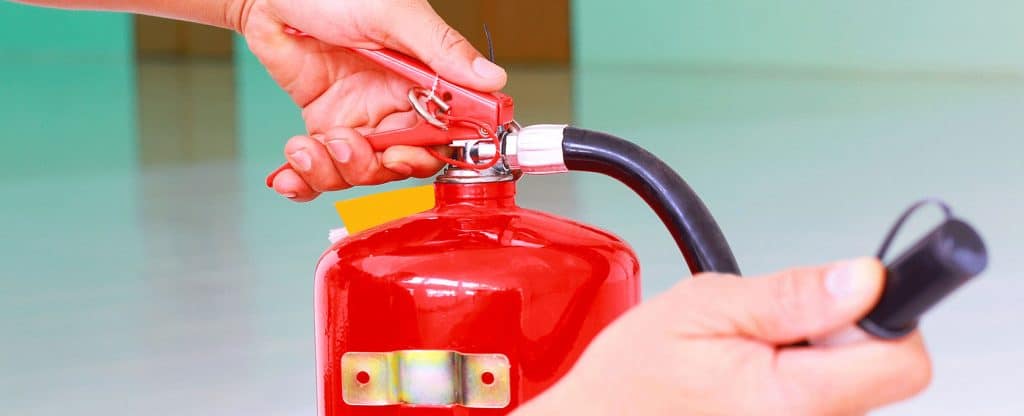Experts recommend that you have at least two fire extinguishers close to an exit, one near the kitchen and another in your garage. If your home or property includes a workshop, it’s a good idea to have a fire extinguisher there as well. When choosing a fire extinguisher and deciding where to keep it in your home, consider these A-B-Cs. . . .
CLASS A extinguishers are best for putting out fires involving wood, paper/cardboard, or plastics.
CLASS B is designed for fires started by flammable liquids: grease, kerosene, oil or gas.
CLASS C extinguishers are for electrical fires, such as those that involve outlets, circuit breakers, or electrical equipment.
The good news is that you don’t have to buy three separate extinguishers. Most common household fire extinguishers are effective for all types of fires, and are rated ABC. Once you have made the purchase, you should routinely check to be sure it is charged and operational.
When it comes time to use an extinguisher, you don’t want to have to think about it twice. So why not include a practice session for each family member the next time you practice your escape plan? PASS is a simple tip for how to use an extinguisher:
- P — PULL the pin, with the nozzle pointing away from you.
- A — AIM low, pointing at the fire’s base.
- S — SQUEEZE the lever slowly.
- S — SWEEP evenly side-to-side.
Don’t forget the importance of practicing your escape plan regularly! To learn more about fire safety, check out these websites:
- This Old House: How to Choose and Use Fire Extinguishers
- U.S. Fire Administration: Fire Extinguishers
- Ready.gov: Home Fires
- National Fire Protection Association: Safety Tip Sheets
